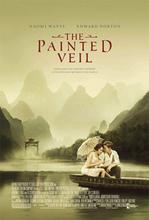
My boyfriend calls it the perfect movie.
I say it comes close, and give it an 8.5.
The mysterious death of one of Hollywood's minor celebrities is the main story in Hollywoodland, and the insistence of the victim's mother that it was not suicide, leads an ex cop-turned-PI to create the hype to turn the case into a murder, as well as solve it. But is there anything to solve in the first place?
And that is precisely what it is at the end of the day, after we've been led on a wild goose chase full of scandals, betrayal, heartbreak and self realization- stories. Stories built based on hype and illusions and everybody's own ideas.
There was no murder, there was no killer, just pure human drama at its best and worst. You want a murder, you make a murder story. It all boils down to how you sensationalise. In Hollywood, it's the glitz on the wrapping; the headline; the most screen time; the most expensive suits and restaurants; the idea that you are what you think you are.
But of course, you're not.
The movie manifests the theme of disillusion in the best way anything is taught, through a firsthand experience. As an audience member, I was fed the sensational murder speculations and bam! I fell for it hook, line and sinker. It was only at the end, though it was before the PI came to the same conclusion, that I realised the truth lay in the opening moments of the movie; that it was what it was - suicide. Back at square one after going to a hundred. That's exactly what the PI went through; what the audience, and I went through; and just the very thing the moviemakers wanted us to feel - the disillusionment with it all. The realisation that just because you say it is so and they print it is so does not make it so.
The execution of the movie is perfect. It achieves a clean balance of telling and re-telling the story; presenting both the past and present appropriately and blending time and story together into one superfluous mission to discover. The interweaved lives of the victim - George Reeves, and the PI hunting for his murderer are joined so smoothly you wouldn't realise it. And for the first time, Ben Affleck impressed me! He slipped into Reeves' shoes so naturally I could almost forget his double chin. His charm and emotions played out well throughout the movie and created a very real character who became quite personal to me. Broody as the PI was apt casting, considering how the PI is a messed up cop-turned-detective with a too-loud mouth and big appetite for pain - both physical and emotional. In other words, the PI is broody. :) Supporting cast wise, Diane Lane is Toni Mannix (Who better to play a slightly insecure, very charming, absolutely beautiful older woman?).
The movie very effectively explores a few themes: fantasy and reality, family-building and togetherness, self-indulgence as a destructive tool, and dreams. The happy and hopeful picture of Broody making up with his son makes clear the movie's throughline: Do not sacrifice love and loved ones for the illusions of grandeur.
It's all in the title really - Hollywoodland a.k.a 'the land of illusion'.







